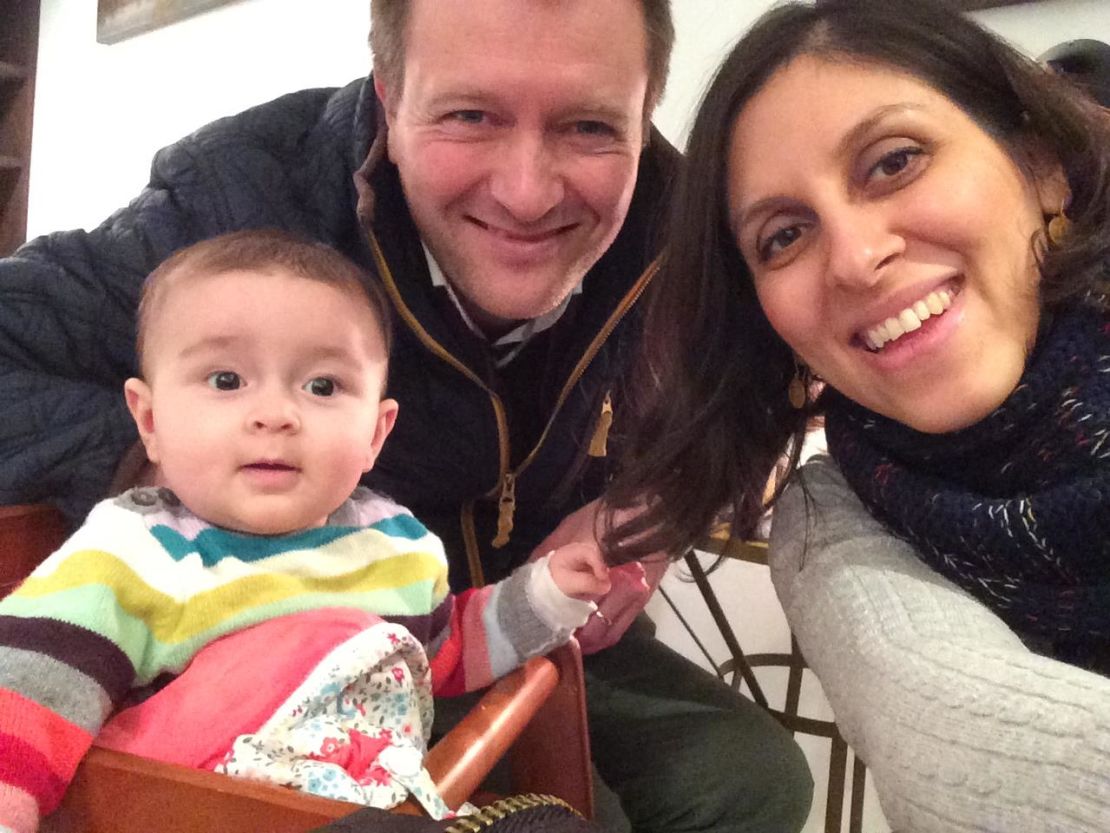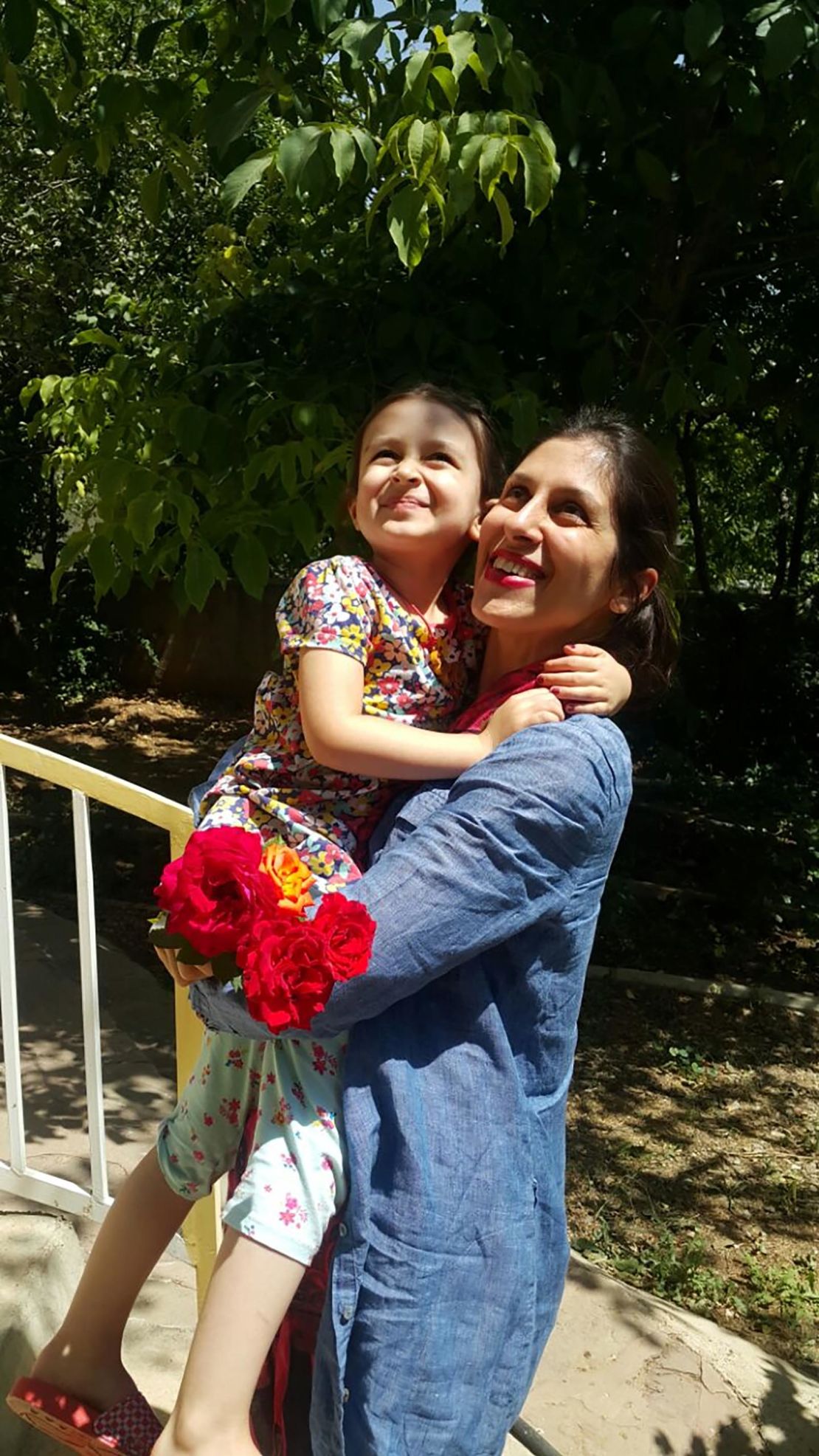A British-Iranian woman who has been jailed in Iran since 2016 began a hunger strike Monday in a desperate attempt to receive medical treatment, as her husband said that prison guards had asked her to spy on the UK in return for her freedom.
Nazanin Zaghari-Ratcliffe, 40, started the three-day hunger strike in a bid to see a specialist for lumps in her breasts and numbness in her limbs, her husband, Richard Ratcliffe, told a press conference in London.
He added that his wife, whose emotional health has severely deteriorated since her arrest more than two years ago, was “pushed to the edge” after members of Iran’s Revolutionary Guard entered her room just after Christmas and made her an offer.
“They tried to push her to become a spy for Iran in the UK,” he said.
Zaghari-Ratcliffe was visiting Iran in April 2016 with her then-22-month-old daughter, Gabriella, when she was arrested at Tehran’s Imam Khomeini airport.
The project manager with the Thomson Reuters Foundation was later jailed for five years on convictions of spying, which she denies. Her daughter, now age 4, remains with Zaghari-Ratcliffe’s parents in Iran.

The mother-of-one from north London is going on hunger strike alongside fellow prisoner and Iranian human rights activist Narges Mohammadi. The women initially plan to strike for three days, and potentially longer if their demands are not met, Zaghari-Ratcliffe’s husband told reporters Monday.
“This isn’t a game,” Ratcliffe said. “This is pretty high stakes for a lot more people than just us.”
He said the prison guards specifically wanted Zaghari-Ratcliffe to target the UK’s Department for International Development and a human rights research group called Small Media.
“She was told it would be safer for her, and safer for her family, if she agreed to do this,” he added. “She has been terrified ever since.”

Ratcliffe was set to meet UK Foreign Secretary Jeremy Hunt later on Monday to discuss the case. Ratcliffe will press Hunt on Britain granting his wife diplomatic protection, a process that would give the government greater powers to assist her and make family visits more likely.
“We want the government to stop saying tough words and (start) making tough acts,” Ratcliffe said.
A Foreign Office spokeswoman said Hunt had discussed the issue of diplomatic protection with Ratcliffe and that he was “keen to take a decision as soon as possible.”
“We continue to take action on all our consular cases in Iran in line with what we believe will produce the best outcomes in their cases,” the spokeswoman added.
